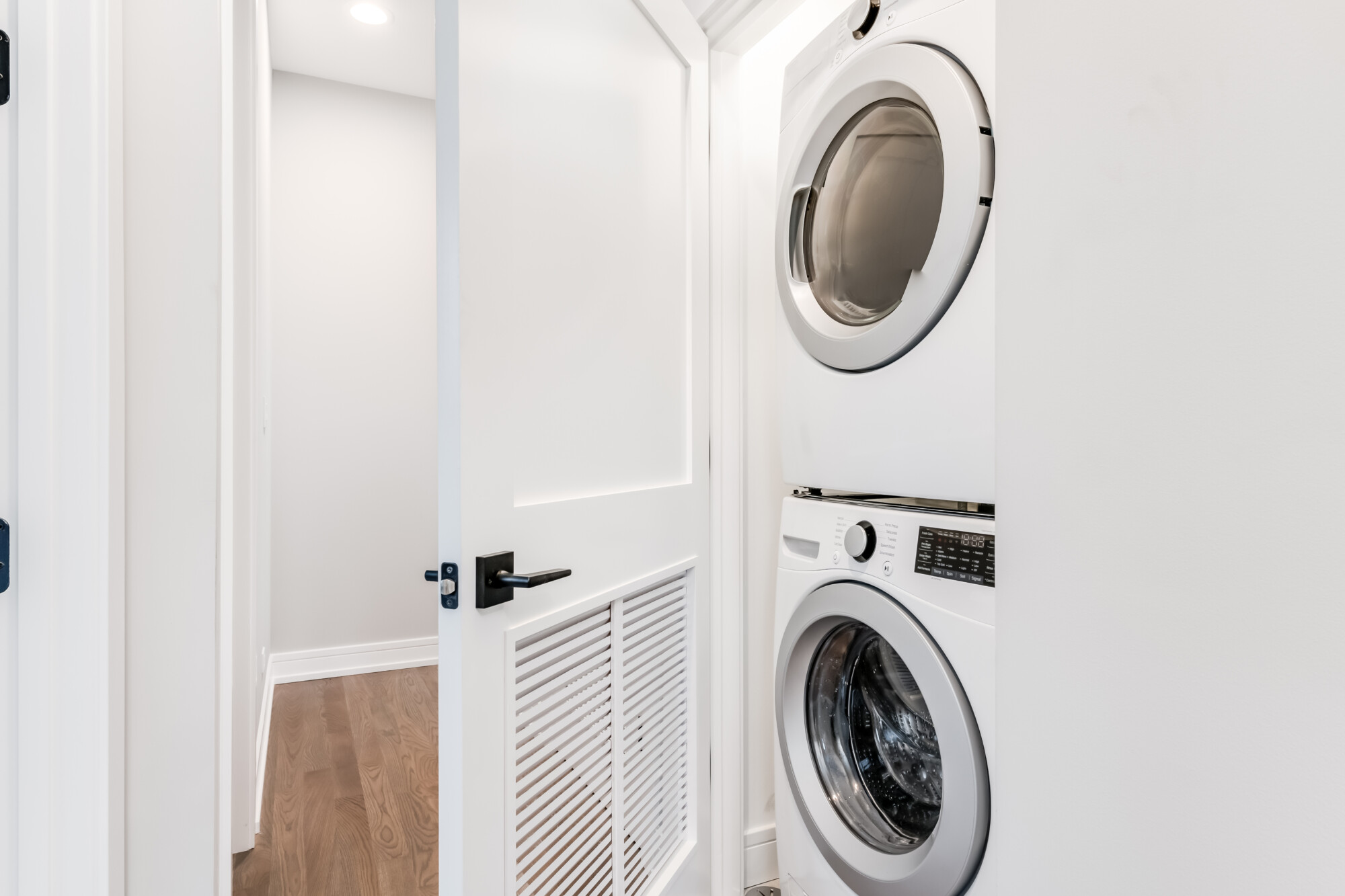Table of Contents Show
Living in cooperative housing, or co-op comes with various advantages and a unique set of rules and regulations. One common restriction in many co-ops in New York City is the prohibition of installing washer-dryer units in individual apartments. This policy, although frustrating for residents who desire the convenience of in-unit laundry, serves several purposes. This article will explore why most co-ops have such restrictions on washer-dryer installations.
Structural ConsiderationsStructural Considerations
One of the primary reasons co-ops restrict washer-dryer installations is the structural capacity of the building. Older buildings, especially those constructed before modern plumbing and electrical systems, may not have the infrastructure necessary to support the increased water and electrical load required by individual washer-dryer units in every apartment. Retrofitting these systems can be costly and complex, leading co-ops to disallow such installations to ensure the safety and integrity of the building.
Plumbing and Drainage IssuesPlumbing and Drainage Issues
Laundry appliances, particularly washers, generate significant water during their operation. Co-ops must consider the impact of multiple washer-dryer units on the building’s plumbing and drainage systems. Excessive water usage can strain these systems, leading to potential leaks, backups, and increased maintenance costs. To mitigate these risks and maintain the smooth functioning of the building’s plumbing, co-ops often limit laundry facilities to designated common areas or shared laundry rooms.
Noise and VibrationNoise and Vibration
Washer-dryer units can be noisy and generate vibrations, especially during the spin cycle. In multi-unit co-op buildings, this can lead to disturbances and complaints from neighboring residents. To maintain a peaceful living environment and minimize conflicts among residents, co-ops often restrict washer-dryer installations to central laundry facilities designed with soundproofing measures.
Fire and Safety ConcernsFire and Safety Concerns
Another critical factor behind the prohibition of washer-dryer units in co-op apartments relates to fire and safety hazards. Dryers, in particular, pose a risk due to the accumulation of lint, which can ignite and cause fires if not properly cleaned. Co-ops implement strict fire safety protocols and regularly inspect common laundry areas to ensure compliance with safety standards. By centralizing laundry facilities, co-ops can better manage and mitigate these risks.
Wear and Tear on Building InfrastructureWear and Tear on Building Infrastructure
Frequent use of in-unit washer-dryer units can increase wear and tear on the building’s plumbing, electrical systems, and structural components. Over time, this can result in costly repairs and maintenance for the co-op. By restricting installations to shared laundry areas, co-ops can better control and manage the usage and maintenance of laundry facilities, minimizing the financial burden on individual residents.
Overloading Electrical SystemsOverloading Electrical Systems
Older co-op buildings may have electrical systems designed to handle a specific load, and adding washer-dryer units could strain these systems beyond their capacity. Installing a washer-dryer may require substantial electrical upgrades to ensure the safe and efficient operation of the appliances. The associated costs and potential disruptions often make co-op boards hesitant to permit such installations.
Conditions for When Washer-Dryer Installation is AllowedConditions for When Washer-Dryer Installation is Allowed
Board Approval:Board Approval:
Board approval is typically required in co-op buildings that allow washer-dryer installations. Residents must apply to the co-op board, providing detailed information about the proposed facility, including the make and model of the appliances, the location within the unit, and any necessary modifications to the plumbing or electrical systems.
Professional InstallationProfessional Installation
Co-ops that permit washer-dryer installations often mandate that licensed professionals install the appliances. This requirement ensures that the structure is performed safely, minimizing the risk of damage to the unit and the building.
Water Leak ProtectionWater Leak Protection
To prevent water leaks and potential damage, co-ops may require the installation of specialized devices, such as automatic shut-off valves or leak detection systems. These devices can detect leaks or excessive water flow and shut off the water supply to the unit, mitigating potential water damage risks.
Noise and Vibration ControlNoise and Vibration Control
Coops may have specific guidelines for installing soundproofing materials or anti-vibration pads to minimize noise and vibration disturbances. These measures help to reduce the impact on neighboring units and maintain a harmonious living environment.
ConclusionConclusion
While many residents in New York City co-op buildings desire the convenience of having a washer-dryer unit in their apartments, the restrictions imposed by co-op boards are often justified by concerns related to structural limitations, water damage risks, noise, and electrical capacity. However, in co-ops that allow for washer-dryer installations, strict guidelines and requirements are in place to ensure the safety and well-being of the building and its residents. By adhering to these conditions, residents can enjoy the convenience of having a washer-dryer unit while minimizing potential risks and disturbances to their neighbors. Residents need to understand and respect the rules set forth by their co-op boards to maintain a harmonious living environment within the building.
Knowing the restrictions on washer-dryer installations is essential if you consider purchasing a co-op apartment in New York City. You should also check with the co-op board to see if any plans exist to relax these restrictions.

